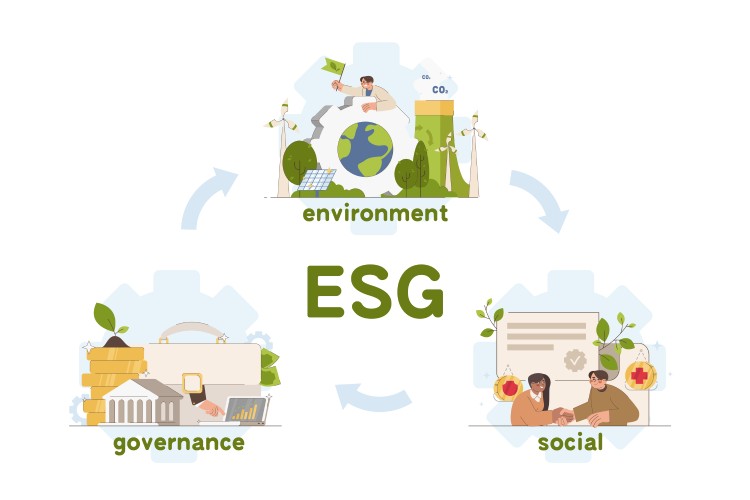
Embracing ESG Criteria in the Food Industry: Boosting Sales and Improving Customer Loyalty
As product manufacturers, it’s crucial to stay ahead of the curve and anticipate consumer demand. One trend that is on the rise and here to stay is the focus on Environmental, Social, and Governance (ESG) criteria. Consumers are becoming increasingly conscious of the impact their purchases have on the environment and society, and they are willing to pay a premium for products that align with their values. In this article, we will explore how paying attention to ESG components can benefit manufacturers in terms of increased sales and improved interaction with consumers. We will also discuss how comprehensive product information, based on full research of its ingredients, can help manufacturers stand out in a crowded market and tap into the growing demand for sustainable products. So, if you want to learn how to increase sales and improve customer loyalty, do not miss out on the powerful opportunity that ESG provides.
The Role of ESG in the Food Industry
In recent years, the food industry has seen a growing emphasis on Environmental, Social, and Governance (ESG) criteria. As consumers become increasingly conscious of the impact their food choices have on the environment and society, they are demanding more transparency and accountability from food manufacturers. This trend is not only driven by consumer demand, but also by the rising pollution crisis, government regulations, and corporate impact.
A recent global survey conducted by Nielsen, a data measurement company, revealed that 81% of global respondents feel strongly that companies should help improve the environment. Furthermore, 73% of respondents said they would definitely or probably change their consumption habits to reduce their impact on the environment. This illustrates the growing importance of ESG in the food industry and the need for manufacturers to pay attention to these criteria.
But it’s not just about meeting regulatory requirements and ethical standards; there is a clear business case for embracing ESG in the food industry. The survey also found that consumers are willing to pay a premium for products that are organic (41%), made with sustainable materials (38%), or deliver on socially responsible claims (30%), in addition to meeting safety and high-quality standards (49%). This means that by paying attention to ESG criteria, food manufacturers can tap into a growing market and increase sales.
Next we will explore the role of ESG in the food industry and the benefits it can bring to manufacturers. We will also look at some of the mega trends that are driving sustainability in the food industry, and how food manufacturers can adapt to these trends to meet consumer demand for sustainable products.
Note that the food industry is not limited to the production and sale of food products, it also includes the impact it has on society, the environment, and economy. Adopting ESG criteria can help food manufacturers to identify potential risks and opportunities, and to create long-term value for their business and stakeholders. Environmental considerations such as water and energy use, waste reduction, and carbon emissions, are becoming increasingly important as consumers are more aware of the environmental impact of food production. Social considerations, such as labor rights, human rights, and community engagement, are also becoming more important as consumers demand more transparency and accountability from food manufacturers. Lastly, governance considerations, such as ethical business practices, board composition, and executive compensation, are also playing a role in how consumers make purchasing decisions.
In conclusion, the food industry is facing increasing pressure to adopt sustainable practices, and manufacturers that do so will not only meet regulatory requirements, but also gain a competitive advantage. Consumers are willing to pay a premium for products that align with their values and address social and environmental issues. By embracing ESG criteria, food manufacturers can build a positive reputation, enhance customer retention and boost revenue, while at the same time, contributing to a more sustainable future.
Check if we have information about your product in our database. Try EQO Barcode Scanner.
We are actively updating the food database. There are 5000+ products. It’s free and there’s no need to download any apps. You can quickly get insights of a product using only your smartphone’s camera.
The Role of ESG in the Food Industry
Clearly, that acceptance of ESG criteria is becoming increasingly important for food manufacturers. But it’s not enough to simply adopt sustainable practices, manufacturers need to actively invest in ESG-related research to stay ahead of the curve and understand the ever-evolving consumer demand for sustainable products. In order to do this, manufacturers should invest in tools and technologies that provide them with the data and insights they need to make informed decisions about their products and operations.
One such tool is the EQO label, a comprehensive food research system that allows manufacturers to gather detailed information about their products. EQO offers a wide range of features, including ingredient analysis, nutritional information, and sustainability metrics. This data can be used to identify potential risks and opportunities, as well as to improve product labeling and messaging. Additionally, EQO allows manufacturers to connect to FIS (Food Information System) a database of products, where anyone can find complete information about various products, which can help manufacturers stand out in a crowded market and tap into the growing demand for sustainable products.
Would you like to add your products to our food database? Leave your Email
Using EQO, manufacturers can gain a deeper understanding of their products and their impact on , society, and health. This knowledge can be used to improve their products, reduce their , and communicate their sustainability efforts to consumers. By investing in ESG-related research and utilizing tools like EQO, food manufacturers can stay ahead of the curve, meet consumer demand for sustainable products and increase sales and improve customer loyalty.
Register now and get access to our food database.
Source: The Nielsen Company

2 thoughts on “Embracing ESG Criteria in the Food Industry: Boosting Sales and Improving Customer Loyalty”